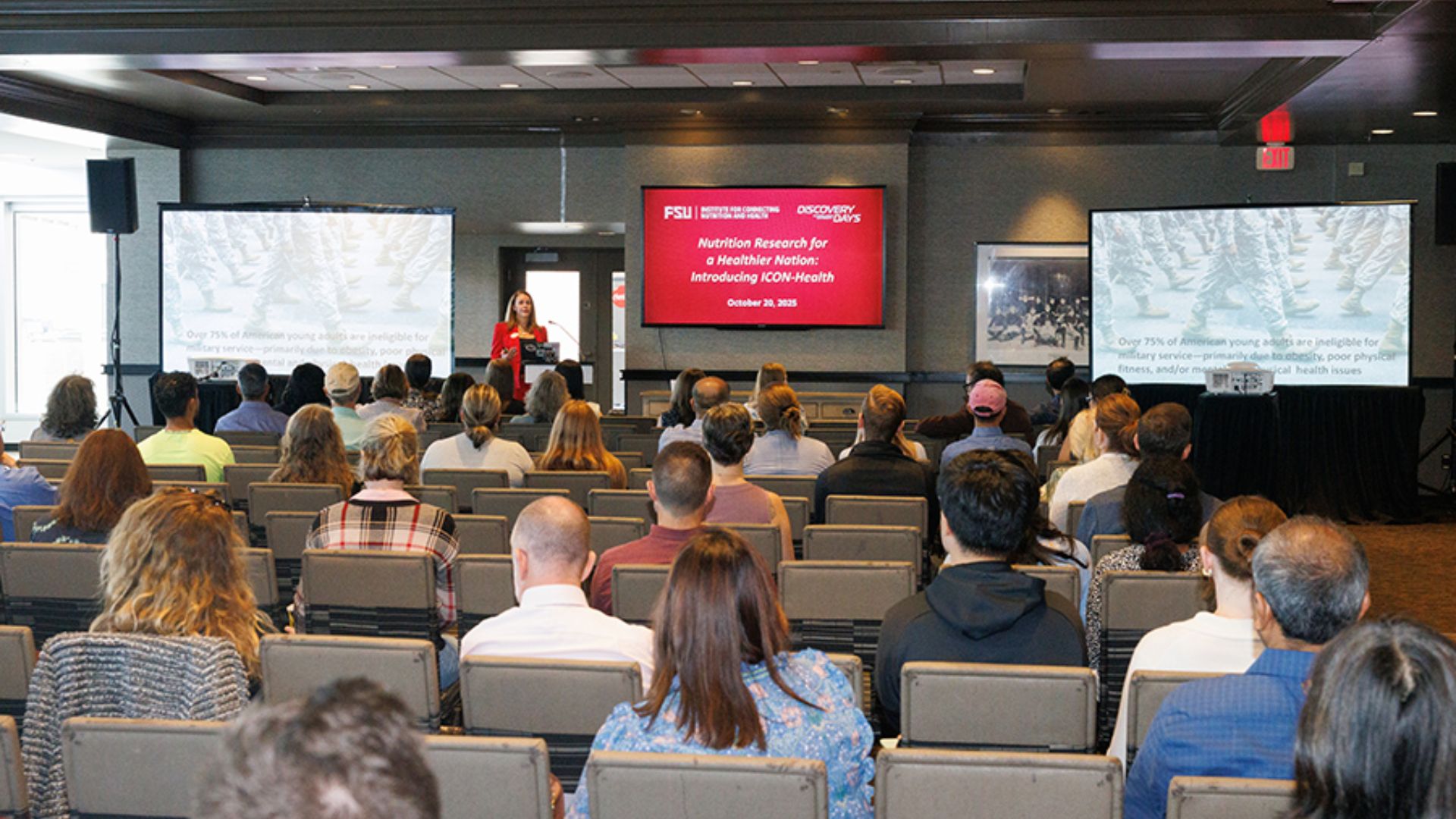South Florida Local News
Florida State University launches a new institute to transform nutrition research and improve public health outcomes for millions of Americans

Florida – Florida State University is setting the stage for a major leap forward in nutrition research with the launch of its new Institute for Connecting Nutrition and Health, known as ICON-Health. This pioneering initiative is designed to tackle the persistent challenge of diet-related chronic diseases, which continue to take a heavy toll on Americans’ health and on the nation’s economy. With obesity, heart disease, diabetes, and other conditions contributing to premature death and skyrocketing healthcare costs, the institute aims to bring a multidisciplinary approach to the table, connecting researchers across fields to find solutions that can improve public health and quality of life.
“ICON-Health sets the foundation for where we’re heading in nutrition and health outcomes, lowering chronic disease and improving life for millions of people,” said FSU Vice President for Research Stacey S. Patterson. “FSU has an opportunity to bring together brilliant researchers from a variety of disciplines to work on problems that will move nutritional science forward.”
The leadership team at ICON-Health includes two of the nation’s leading experts in nutrition science. Regan Bailey, a member of the National Academy of Medicine and a professor in the Department of Behavioral Sciences and Social Medicine, and Patrick Stover, a member of the National Academy of Sciences and a professor in the Department of Biomedical Sciences, both at the FSU College of Medicine, are guiding the institute’s mission. Bailey and Stover recently introduced ICON-Health to fellow researchers and clinical partners at an FSU Discovery Days event, held at the Dunlap Champions Club.
“Is there anyone here who hasn’t eaten in the past three days?” Bailey asked the audience at the start of her talk, a question met with silence that underscored a simple truth — food is one of the most pervasive environmental factors in human life, shaping health in profound ways. Bailey’s work as a nutritional epidemiologist has focused on promoting health through food across the lifespan. Her team has identified nutritional risks in specific populations, guided food fortification policies, developed dietary supplements to address nutrient gaps, and advanced the science of precision nutrition, which tailors dietary recommendations to individual needs.
“Through research and education, we are hoping to reduce the burden of chronic disease on people and lower their economic impact,” Bailey said. “There’s a commitment from FSU leadership to bring nutrition to the forefront. That is what is going to catalyze all these different relationships and collaborations across campus. That’s our goal at ICON-Health, to connect disparate researchers with common goals, so we can leverage opportunities and research dollars to make the most impact.”
Stover’s research complements Bailey’s work by investigating the fundamental biochemical, genetic, and epigenetic mechanisms linking nutrition to human health. He has focused particularly on the role of nutrients, food fortification, and dietary supplements in preventing and managing conditions such as developmental anomalies, nerve damage, and cancer. His work has revealed how folate, a critical B-vitamin, affects DNA synthesis, expression, and repair, while also demonstrating how genetic differences and chronic disease can alter nutrient needs.
“ICON-Health is an institute established to address some of the most pressing societal problems that are facing our nation and the world,” Stover said. “There’s an opportunity to do innovative science around interesting problems where we have real knowledge gaps. We’re addressing one of the most pressing problems facing our society, which is how do we make food the solution to human health?”
The urgency of this work is clear. Many Americans suffer from diet-related chronic diseases, which are often exacerbated by a disconnect between what people eat and their individual biology. Stover emphasized the widespread impact of this problem: “We need to address this problem. It’s one of the most pressing problems facing virtually every single American.”
Following the opening remarks, faculty members from across FSU presented their ongoing research in a lightning round format, demonstrating how nutrition intersects with multiple disciplines. Researchers from the College of Medicine, Anne Spencer Daves College of Education, Health, and Human Sciences, College of Law, College of Arts and Sciences, College of Communication and Information, and the FAMU-FSU College of Engineering shared insights on topics ranging from health law to the gut microbiome’s role in neurocognitive and intestinal health.
“From these lightning talks, we saw how complex nutrition is — from cells to societies — that’s why we all need to work together to advance this mission,” Bailey said. The presentations highlighted that addressing chronic disease and improving nutrition is not a problem that can be solved by a single discipline. Instead, it requires collaboration across medicine, education, policy, law, engineering, and social sciences.
Patterson emphasized the necessity of this broad-based approach: “FSU developed ICON-Health because providing healthy nutrition is an interdisciplinary problem. It can’t be solved by one group, one department, or even one university. The opportunity for ICON-Health to collaborate with researchers at FSU and across the country is paramount.”
ICON-Health’s comprehensive strategy is aimed not only at advancing the science of nutrition but also at translating discoveries into real-world benefits. By leveraging the expertise of FSU faculty and health partners, the institute plans to develop programs and policies that improve dietary habits, support the development of new food products, and inform public health initiatives. Its work seeks to bridge the gap between basic nutritional science and practical interventions that can reduce chronic disease, improve quality of life, and lessen the economic burden on society.
The creation of ICON-Health comes at a critical moment, as the United States continues to struggle with widespread diet-related health issues. Obesity rates remain high, chronic illnesses linked to diet are rampant, and the economic cost of these conditions continues to grow. FSU’s initiative offers a model for how universities can take a leadership role in solving these complex challenges by connecting researchers across disciplines and focusing on holistic, evidence-based solutions.
For those interested in learning more about the institute, collaborating on research, or supporting its initiatives, FSU encourages visiting the ICON-Health website. By bringing together expertise in behavioral sciences, biomedical sciences, public health, law, education, and engineering, ICON-Health is positioned to become a national leader in nutrition research and a key driver of innovation in the fight against chronic disease.
Through ICON-Health, Florida State University is not just studying the science of nutrition; it is actively building a bridge between research and action. With a focus on interdisciplinary collaboration, innovative research, and practical solutions, the institute aims to make healthy food a cornerstone of improved health outcomes for millions of people. The work being done at ICON-Health could shape the future of public health, offering hope for a nation grappling with the consequences of poor nutrition and a path forward to a healthier, more resilient society.

-

 Community11 months ago
Community11 months agoPompano Beach Pier: A coastal gem in South Florida
-

 Community11 months ago
Community11 months agoDiscover the best of Pompano Beach, Florida: A comprehensive guide to the most popular places to visit
-

 Community11 months ago
Community11 months agoPompano Beach cost of living: Housing costs, gas prices, and required income
-

 Community11 months ago
Community11 months agoMost popular Pompano Beach marinas: Fishing, boating, and a lot of fun time














